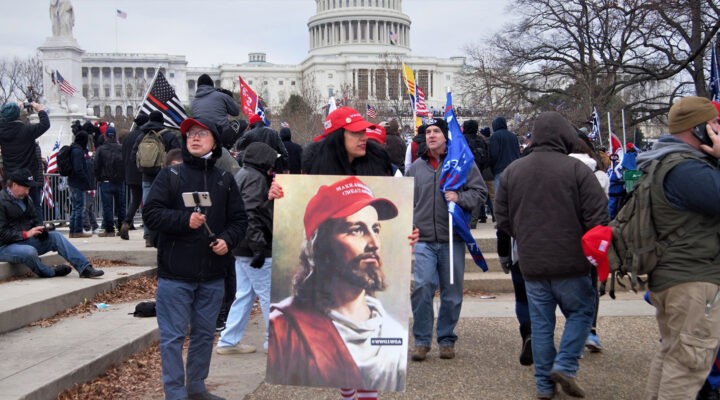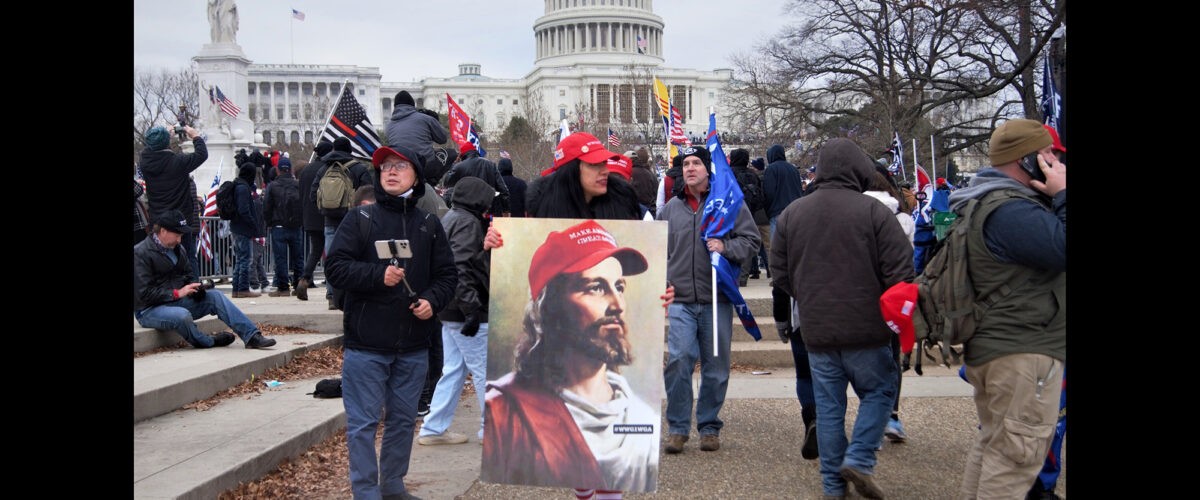The closer faith groups get to approving the ideology of white Christian nationalism, the further they drift from the original teachings of Christ, author and historian Randall Balmer said during a webinar hosted by Faithful America.
“The most effective prophetic religious movements always locate themselves on the margins of society, and not in the councils of power,” said Balmer, an Episcopal priest, Dartmouth College religion professor and author of more than a dozen books including Bad Faith: Race and the Rise of the Religious Right.
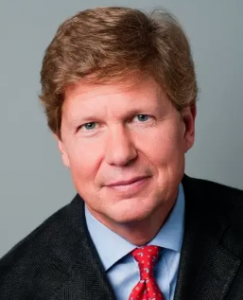
Randall Balmer
But white Christian nationalism strips away any semblance of gospel witness because its purpose is to seize absolute control of government and society by ending democracy and pluralism, he said.
“Once you begin to lust after political power and political influence, you lose your prophetic voice. The Religious Right is a great example of that. You can also make the point that Mainline Protestantism in the post-(World War II) era up through the mid-1960s was guilty of that, as well.”
Balmer was joined on the Feb. 19 webinar by fellow guest Jemar Tisby, professor of history at Simmons College of Kentucky, author of The New York Times bestseller The Color of Compromise: The Truth about the American Church’s Complicity in Racism, and president of The Witness, an organization dedicated to Black empowerment.
Balmer, Tisby and moderator Nathan Empsall explored the aims of white Christian nationalism, its moral and spiritual destructiveness and why it is important to identify the movement as ideologically white.
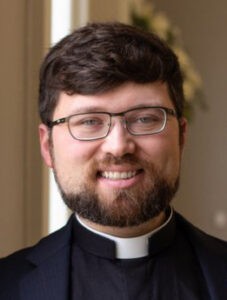
Nathan Empsall
“Our friends at Christians Against Christian Nationalism say that Christian nationalism gives cover to and helps propagate white supremacy. Ultimately, we use both terms depending on the context, but they are the same,” said Empsall, an Episcopal priest and executive director of Faithful America, an online Christian social action community.
The white supremacy in Christian nationalism manifests in numerous ways, including in nationwide legislative efforts to ban the teaching of Black history and Critical Race Theory in public schools and universities, he said. “Even when we just say, ‘Christian nationalism,’ not ‘white Christian nationalism,’ it’s vital that we still point out the racism inherent to Christian nationalism in the American context.”
Identifying the movement as white supremacist exposes some of the more sinister aspirations of the movement, including its goal of re-ordering American society along the lines of pre-Civil War Southern plantations, Tisby said.
“You had a wealthy white male who was the head of the plantation, and it was always that way. And that wealthy white male was the patriarch of the entire plantation family — first for his immediate family, his white wife and their children, and then for the so-called pseudo family, which included enslaved people as perpetual children.”
After the Civil War, many Southerners pined for the days when society was more orderly, people knew their places and no one was agitating for justice and equality, Tisby said. “There’s some reminiscence of that in this idea of MAGA, Make America Great Again. Implicit in that idea is to make society an ordered hierarchy like it used to be, to make sure everyone knows their place and oh, it just happens that wealthy white men tend to be on top in that society.”
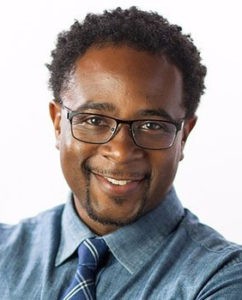
Jemar Tisby
The word “Christian” is used because it describes adherents’ belief that they have been divinely inspired to take control of American government and society, Tisby said.
“They see it as a holy mission, almost a crusade,” he explained. “And then what are they truly about? Political power and social control. They want to use the levers of democracy to get into office. And once they get into the office, they’ll change the rules so that they can stay in office no matter what the will of the people is. That’s why it’s a threat to democracy, but also a form of social control.”
However, the religious designation comes with an asterisk attached, he asserted. “It’s not Christian in the sense that it doesn’t resemble Jesus, but it is Christian in the sense that it does use Christian symbols, like crosses, the Bible and it uses prayer.”
White Christian nationalism also poses a danger to Christianity and the American church, Tisby added. “It’s a threat to the witness of the church today because of the way it’s repelling people from Jesus. It’s causing folks to run away from the church because they look at white Christian nationalism and they think, if that’s what Christianity is about, they want nothing to do with it.”
The fact that some Black Americans have endorsed the ideology doesn’t negate its racist character, he added. “White Christian nationalism is a set of ideas that, if you ascribe to them, you can have provisional acceptance in the group and be strategically deployed as a colorful face to deflect accusations of racism. But the ideology is still there.”

